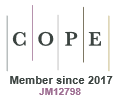Assessment of lateral compression of the idiosoma in adult water mites as a taxonomic character and reclassification of Frontipodopsis Walter, Wettina Piersig and some other basal Hygrobatoidea (Acari : Hydrachnida)
David R. Cook,
Ian M. Smith and
Mark S. Harvey
Invertebrate Taxonomy
14(4) 433 - 448
Published: 2000
Abstract
Systematists have frequently interpreted lateral compression of the idiosoma in post-larval instars of water mites as a synapomorphy indicating common ancestry. This paper re-examines the evidence to support this assumption and concludes that lateral flattening has occurred independently several times during water mite evolution, and especially often in various basal clades of the superfamily Hygrobatoidea. Reassessment of the phylogenetic relationships of the genera attributed to these clades results in improved understanding of the early evolution and biogeography of hygrobatoid water mites and necessitates redefinition of several clades and significant revision of the family classification. The South African genus Karlvietsia K.O. Viets, 1962 is transferred from the subfamily Frontipodopsinae of the family Aturidae to the Hygrobatidae. The Australian genera Tasmanaxona Cook, 1986, Wheenyella Cook, 1986 and Wheenyoides Harvey, 1990 are also removed from Frontipodopsinae and placed with the genus Wettina Piersig, 1892, here removed from the family Pionidae, in the family Wettinidae Cook, stat. nov. Based on apparent relationship with members of Wettinidae, the South African genus Stormaxonella K.O. Viets, 1962 is transferred from the Aturidae and provisionally placed in the Wettinidae. The clade including the predominately Holarctic genus Lethaxona K.H. Viets, 1932 and the Western Hemisphere genus LethaxonellaCook, 1963 is recognised as the probable sister group of Wettinidae, and these genera are consequently removed from the Aturidae and placed in Lethaxonidae, fam. nov. The genus Frontipodopsis Walter is reassigned from Aturidae to the now monobasic family Frontipodopsidae K.H. Viets, stat. nov. Finally, five new species are described, including Frontipodopsis (Frontipodopsella) sudafricanus, sp. nov., Wettina occidentalis, sp. nov., Karlvietsia simplex, sp. nov., Hygrobates (Hygrobates) gereckei, sp. nov. and Hygrobates (Hygrobatides)frontipodoides, sp. nov., and both Karlvietsia brevipalpis K.O. Viets and K. angustipalpis K.O. Viets are redescribed.https://doi.org/10.1071/IT99014
© CSIRO 2000


